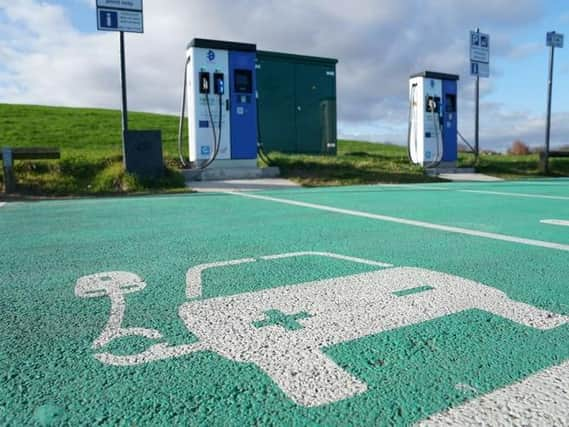Rising number of electric vehicles in North Lincs


But the Labour Party says the Government needs to do more to make eco-friendly cars more affordable for families across the UK as national data suggests uptake as a whole is being driven more by companies.
Department for Transport statistics show 390 ultra-low emission vehicles (ULEVs) were licensed in North Lincolnshire at the end of last year – 131 more than at the end of 2019, when there were 259, including battery electric, plug-in hybrid electric, and fuel cell electric vehicles.
Advertisement
Hide AdAdvertisement
Hide AdOf the additions, the majority (70) were registered to private keepers, while 61 were to the addresses of local firms.
The DfT said a vehicle’s address does not necessarily reflect where it is located, especially for large fleets kept by companies for leasing or rentals.
Overall, ULEVs still only accounted for around 0.3 percent of all vehicles licensed in North Lincolnshire at the end of 2020 – below the UK average of 1.1 percent.
The Government has committed to ending the sale of new petrol and diesel cars and vans by 2030, and ensuring all new sales are “zero emissions at the tailpipe” by 2035.
Advertisement
Hide AdAdvertisement
Hide AdIn the DfT figures, a ULEV is defined as a vehicle with reported tailpipe CO2 emissions of fewer than 75 grams per kilometre, which means not all of them would meet this new requirement.
In North Lincolnshire, 187 of the ULEVs licensed at the end of the year were battery electric vehicles – defined as zero emission.
A further 188 were plug-in hybrid electric vehicles, which combine an electric motor with a petrol or diesel engine.
Across the UK, 64 percent of ULEVS registered for the first time last year were battery electric vehicles, while plug-in hybrid electric vehicles accounted for 35 percent.
Advertisement
Hide AdAdvertisement
Hide AdTransport Minister Rachel Maclean said that more alternative fuel cars were registered across Great Britain for the first time last year, although this includes some types of hybrid vehicles not classed as ULEVs.
“This is proof that more people are moving away from diesel cars, as we build back greener and clean up the air in our towns and cities,” she added.
“With £2.8 billion of government support to encourage their take-up, there has never been a better time to switch to an electric vehicle.”